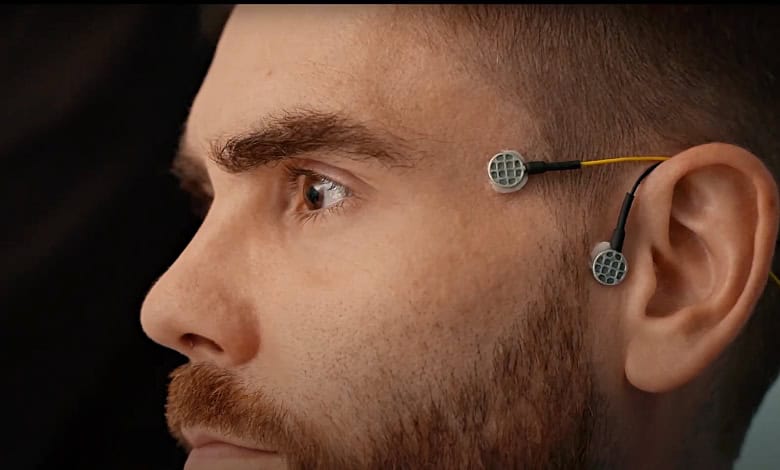
In January 2023, Harvard Health Publishing reported that 92 percent of Americans consider integrative health approaches beneficial, with over 67 percent of respondents over 50 years using some natural treatments to help with ailments.
For the last couple of years, documentary filmmaker Nick Pineault has been producing “Body Burden.” The documentary is a new attempt to set straight the bamboozlement in Americans over a large part of the integrative health market sector, detoxification and environmental medicine.
Pineault seeks to do this both by spotlighting the claims doctors make about which (if any) detox protocols work, and by using himself as a test subject.
“I’m a healthy 37 year old, and even then I have high concentrations of two known neurotoxins,” he says in the film.
One lab result turns out to show Pineault’s fluids have elevated levels of lead. He recounts that he tested at 34 times higher than the recommended concentration of lead, which was officially removed from gasoline and paint in the US in the 1970s, Pineault could be described, to use a term of millennial slang, as “shook.”
Enter the film’s selected experts in environmental medicine. A doctor from an environmental medicine clinic in South Carolina – a state having one of the largest per capita military presences that is pervaded by related environmental health concerns – says that elevated lead levels are typically found in individuals who have worked in metal, electronics, aviation, or similar industries for a career.
Pineault, a journalist by occupation, says to the cameras, “I have no idea where I’ve gotten it from.”
Thus highly motivated for his own well-being, Pineault’s film questions what’s known and unknown about toxins and health.
What if your brain fog, low energy, or gut issues are not just the result of “getting older”?
That’s the question explored in Body Burden: Hope for Deeper Healing, a powerful new documentary by The EMF Guy, Nick Pineault.
Register here for access: https://t.co/5u8bNXxRJh pic.twitter.com/mR3eQr80AC
— Juvent Health (@juventhealth) September 15, 2025
These ideas are not foreign to the large Make America Healthy Again (MAHA) electorate, regardless of political stripes. A driving concern to citizens is that too many sources of environmental pollution – not up in the atmosphere holding heat, melting Greenland, and making storms – but down here in the dirt, water, technosphere, and domestic settings may be having an effect on our life expectancy, well-being and fertility.
Yet, because these effects are molecular and unseen, confusion about their causes and solutions can reign supreme.
Advertisements to detox have become ubiquitous on social media, and the majority of them are scrolled past. Yet when a person mysteriously falls sick, is fatigued or foggy-minded, he or she may want answers.
The double-edged sword of detox messaging’s ubiquity is then unsheathed: what is the truth that would really help someone get better?
Pineault acknowledges the difficulty of understanding, let alone acting effectively in the maze of modern toxicity claims, putting it bluntly in Body Burden: “Is there hope” of sifting through and finding practical solutions for large numbers of Americans’ health issues that could be the detriment of toxic loads?
To its credit, “Body Burden” includes a walk through the lingo. In Pineault’s case, his lead level is 38 μg/g creatinine. That means his creatinine, a naturally present component in the body found especially in the elimination system, contained 38 micrograms of lead per gram of creatinine.
Theoretically, individuals who are unaffected by elevated lead would have lab results at just over 1 μg lead per g creatinine–but that’s if the norms and standards in medical toxicology can be trusted. “Body Burden” doesn’t take that as a given, though.
It voices skepticism that anyone in the U.S. could be found whose factual lead level is only 1.1 μg/g lead. Exploiting and making a buck off of fear would start there, with the supposed norms.
Then, “Body Burden” asks about what one might actually do if one decides that lowering their measured body toxins is for them. Pick up and relocate? Try cleanses? Teas? Fasting? Chelation? Lymph pressure? Diet change? Sweating? Hydrotherapy? Frequency saunas?
Things they teach you in school, right?
How can busy Americans sort through the options to tell fakery from authenticity, and distinguish the many brands and ventures within each type of protocol?
The environmental medicine doctors in “Body Burden” treat military workers on veterans health plans, where performance and effectiveness trackability are ostensibly valued. In the elusive world of detoxification accountability studies, clinics like South Carolina’s Deeper Healing, asserts Pineault in the film, at the least provide some solidity on which to base claims.
With his French accent and spectacles, Pineault presents an entertaining blend of investigative nerd and hardcore amateur athletic participant. He unhesitatingly delivers the analyses at which he’s methodically arrived, while you’re still asking, “Where did this guy come from?”
Pineault’s job is more specialized than “Super Size Me” star Morgan Spurlock’s was, because the audience knew what fast food was, while a smaller (but growing) sample of the population knows much about environmental medicine or detoxification.
The eclectic geeky delivery serves in helping the audience lend attention and even critique to the details. For “Body Burden’s” question is not merely whether to moderate one’s fast food intake as Spurlock asked 21 years ago, but whether and how one should navigate the changing and complex terrain of emerging forms of the health care industry.
For MAHA, the movement proper never was just about the Secretary of HHS Robert F. Kennedy. It is about uprooting graft in medicine, and embracing our responsibility and freedom to live well and pass on health to the next generation of Americans.
Graft indeed is present in environmental medicine and detoxification. “Body Burden” is a project on an expressed and personal mission to find it and expose it, while helping people go forward with an understanding of toxins and detoxification, as trust continues to break in various existing medical models.
